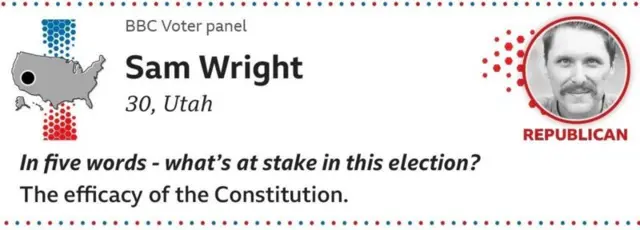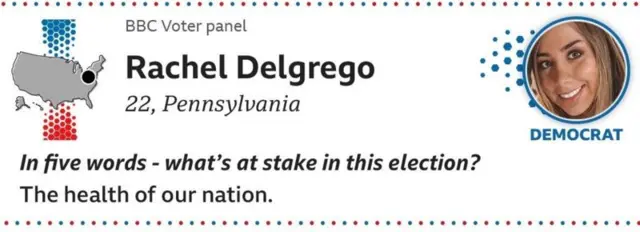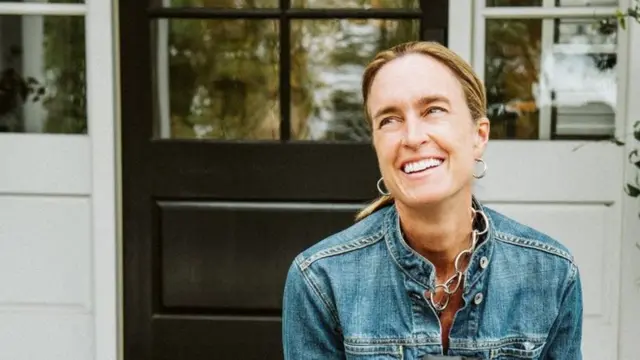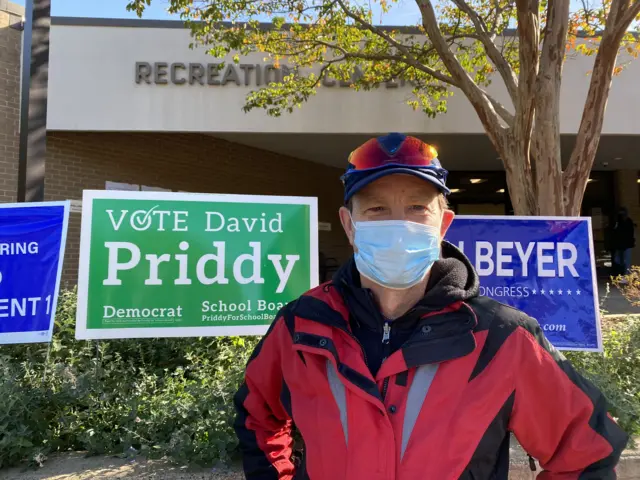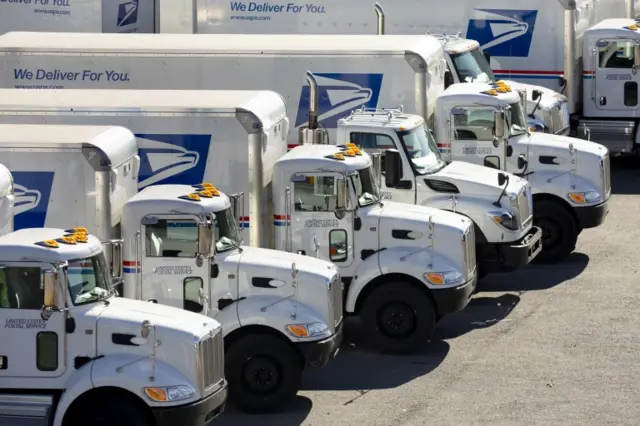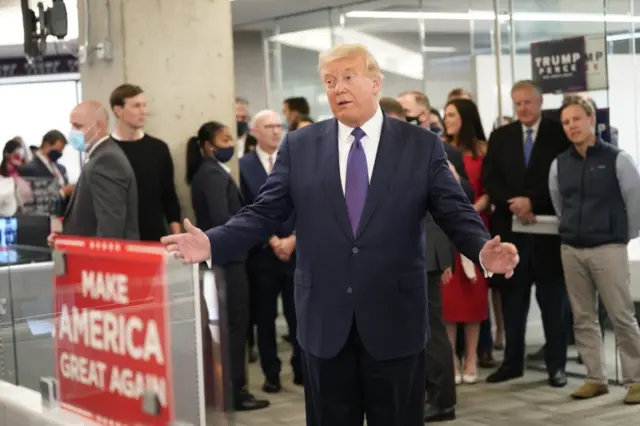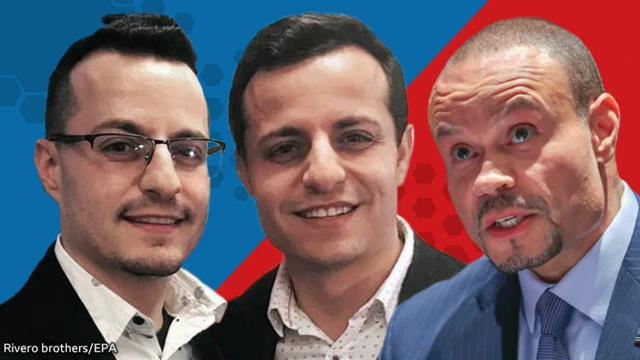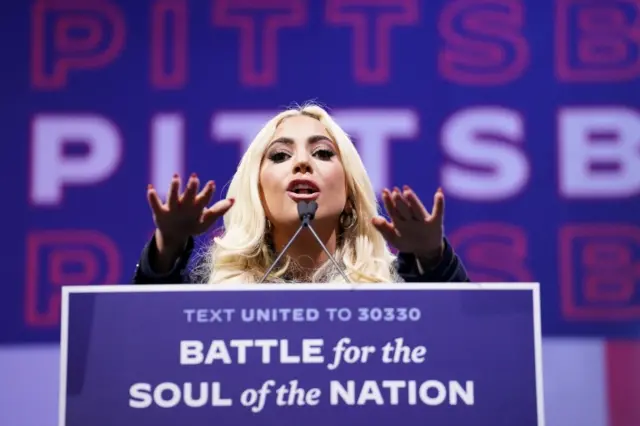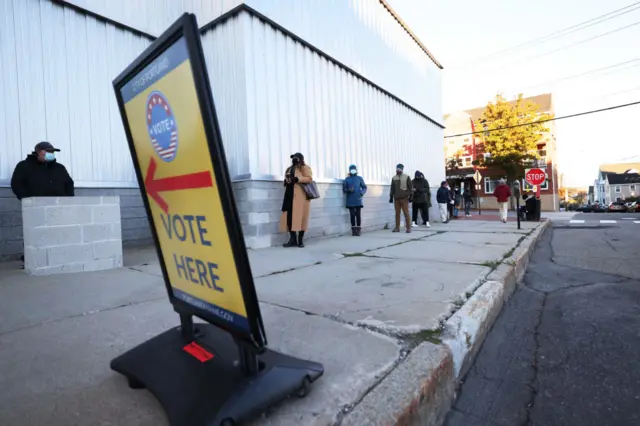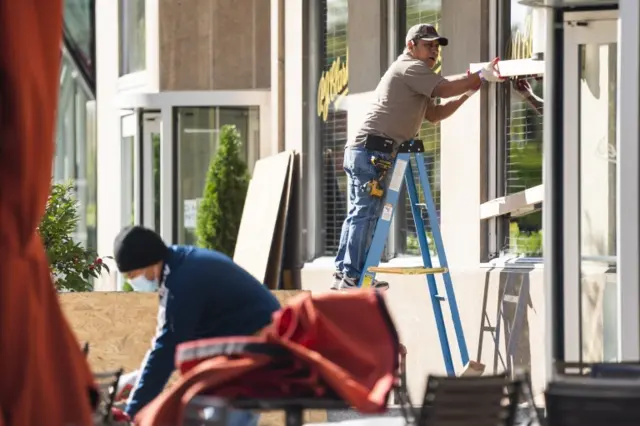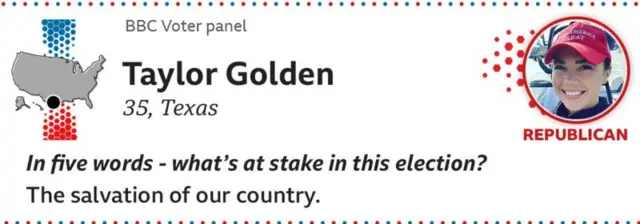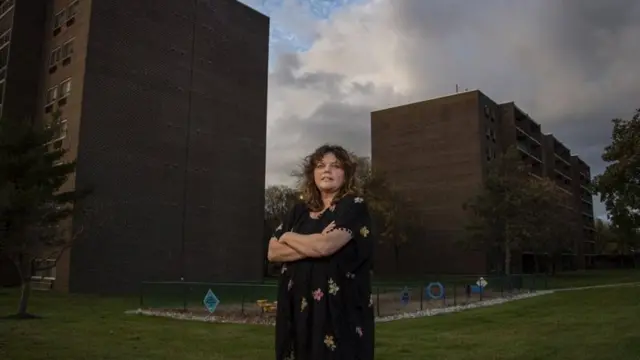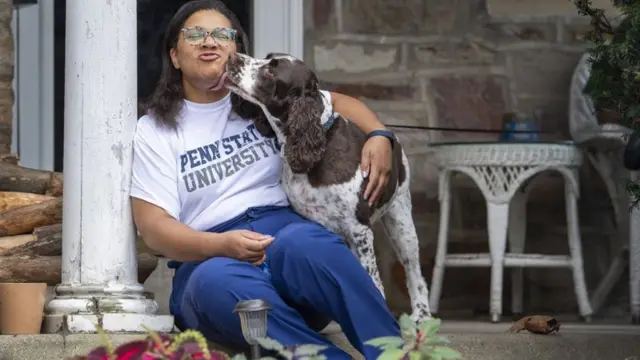'I think we are at the beginning of a revolution'published at 19:57 GMT 3 November 2020
 Chelsea Bailey
Chelsea Bailey
Digital producer, BBC News
Across the street from Edward Waters College, the oldest historically black college in Florida, a steady stream of voters file into their polling place.
“I think we are at the beginning of a revolution,” local activist Kruzshander Scott tells me.
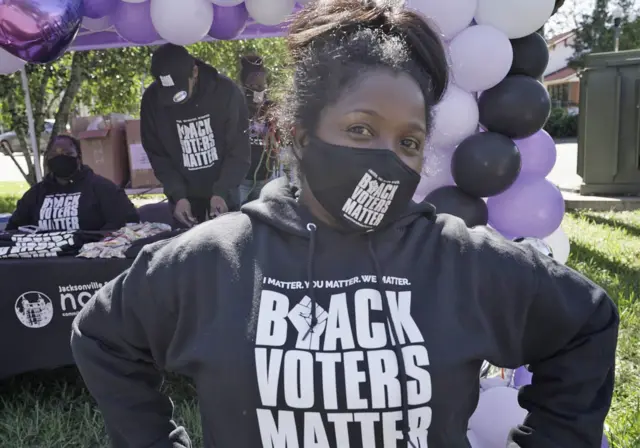
Kruzshander Scott
“We’re dealing with a microcosm of folks that have been mentally, systematically and historically oppressed. If Duval County (votes for Biden) tonight I believe it will give folks the faith and the courage to expect things to be equitable and fair going forward.”
If Florida does go blue, it could be thanks to high turnout from minorities and young, first time voters like 20-year-old Gerard Marc-Lipscomb.
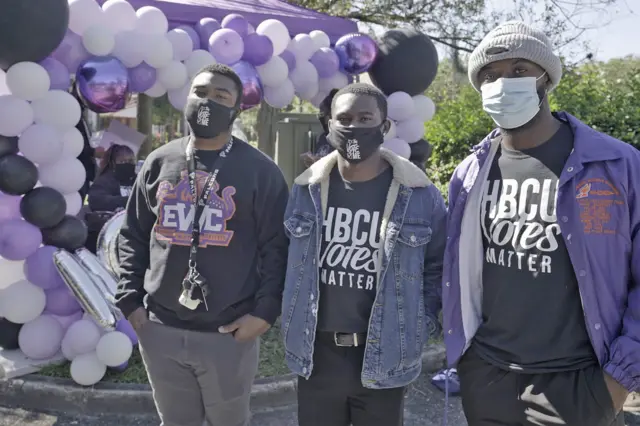
First time voter Gerard Marc-Lipscomb (right), 20, and his classmates Henry Keeler and Gregory Sherrod
He says he was raised to believe in the power of his vote, but years of turmoil in the black community made his choice feel more significant.
“We haven’t been treated well for the last four years,” he says. “I think the ball is in our hands so we can either make a change now, or be in the same loop.”
